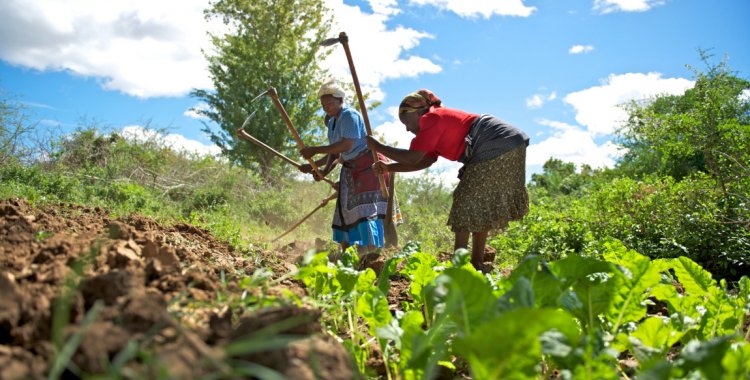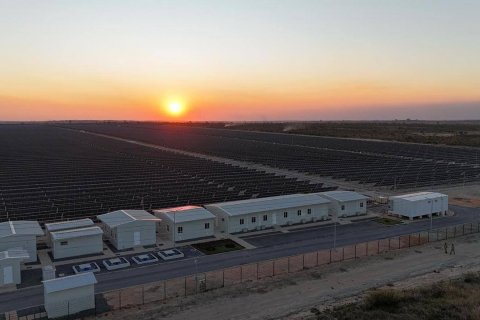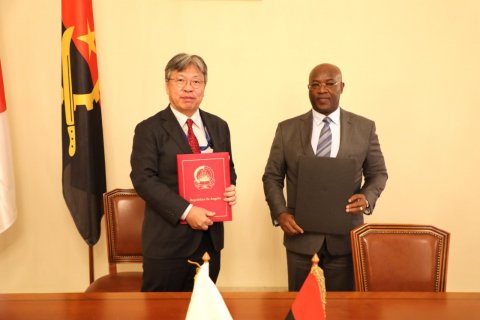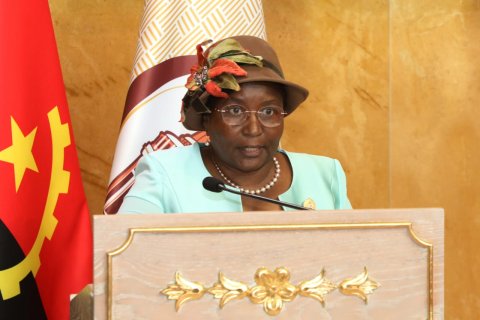Created with support from the World Bank, these funds managed by cooperatives function in a similar way to microcredit, financing productive activities or other activities of interest to the community.
"It's practically like a bank in the community", said, in an interview with Lusa, the president of FADA, Felisbela Francisco.
FADA was tasked, in 2023, with boosting the financial resources of community funds, with 5 billion kwanzas being made available for this purpose.
To date, 127 cooperatives have been financed with community funds, in Malanje, Bié and Huambo, totaling 990 million kwanzas, with 70 percent of this amount invested in production, while the remaining 30 percent is reserved for the community fund.
The funds finance loans with variable rates between 10 percent for members and 15 percent for non-members and play "a very important role in supporting producers", highlighted the FADA official.
Some cooperatives have been creating schools, pharmacies, mills and even rehabilitating roads, she pointed out, indicating that any disputes are resolved using the arbitration commission, which includes a soba (head of the local community).
Since the end of 2020, FADA has granted 2,172 credits, worth 17 billion kwanzas, said Felisbela Francisco, highlighting that the volume of loans has been gradually increasing.
In the first three months of this year alone, loans totaled 3 billion kwanzas.
The loans, with subsidized interest rates ranging between 1 and 3 percent, reached 123,595 direct beneficiaries, that is, individual producers, cooperatives, micro and small companies and agricultural associations.
To these are added another 713,166 indirect beneficiaries, included in their households.
Half of the credits granted were intended for individual producers (1462 loans worth more than 8 billion kwanzas), with the others being granted to cooperatives (533), small companies (170) and agricultural associations (7).
Among the most sought after lines of financing, production support stands out, aimed at purchasing inputs such as fertilizers and seeds, through which around half of the credits were channeled.
FADA also has lines of support for investment, for the acquisition of agricultural equipment, support for marketing, for the purchase of means of transport to transport production, and support for community funds to finance cooperatives and the funds generated by them, up to a maximum value of 25 million kwanzas.
With an average annual funding of 4 billion kwanzas from ornamental allocations, FADA is preparing to soon launch a new line for livestock farming, with specific products for pig farming, poultry farming, goat farming and rabbit farming.
"When creating a financial product, we think about the real needs of producers", said Felisbela Francisco, who has led FADA for nine months, highlighting the importance of family farming in Angola, where there are more than three million agricultural holdings.
To access loans, farmers must meet certain requirements, such as having a bank account, identity card and property title and sending a letter requesting credit, which, given the high rates of illiteracy, reduced bank access rate and difficulty in accessing documentation, it risks leaving out a large number of potential beneficiaries.
Felisbela Francisco recognized these obstacles and said that FADA presented a proposal to the National Bank of Angola to replace the property title with a declaration from the soba recognizing ownership of the land and the creation of specific regulations for the family farming segment.
She believes that this facility will also have an effect on reducing the application rejection rate, which reached 21 percent in 2022, but dropped to 5 percent in 2023. "This year we hope it will be zero", she stressed.
The official added that, for now, FADA has been working in coordination with anchor farms equipped with good agricultural practices, which support families in accessing financing and technical assistance, also purchasing production.
There are already memorandums signed with farms in Huambo, involving 147 families that produce wheat and corn, and in Cuando Cubango, with around 300 families involved in rice production, he exemplified.
Among the main advantages of this non-banking financial institution, dedicated to financing actions aimed at developing family farming, Felisbela Francisco highlighted the low interest rate and grace periods and reimbursement appropriate to the production cycle (between four and five years), as well as such as the speed of disbursements.
He noted, on the other hand, that family farming plays a relevant role in increasing production and consequent import substitution, ensuring 82 percent of domestic production of basic basket goods.







